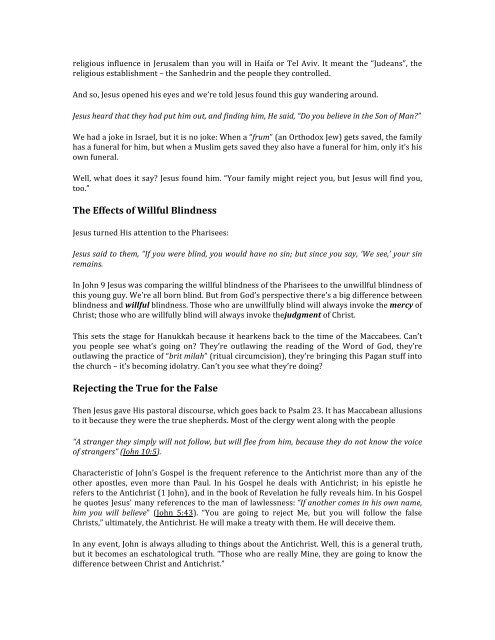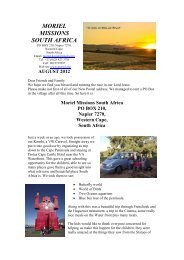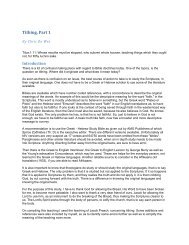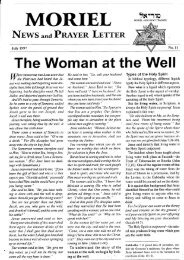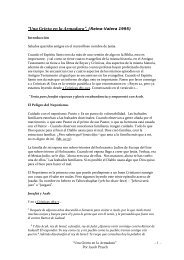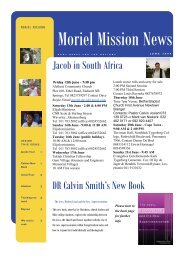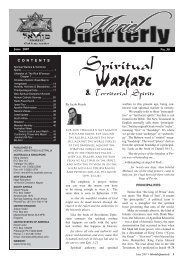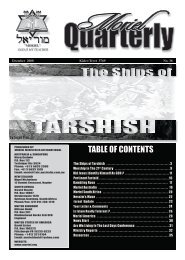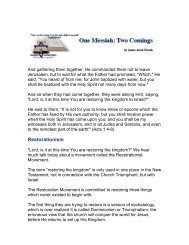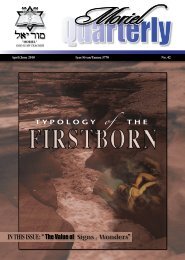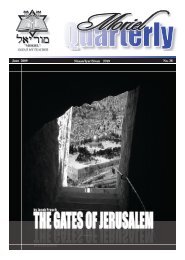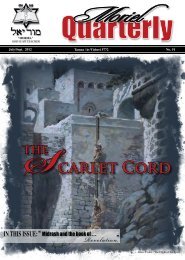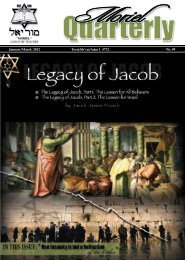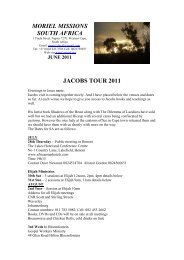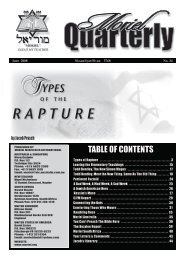Introduction The Traditional Aspect - Moriel Ministries
Introduction The Traditional Aspect - Moriel Ministries
Introduction The Traditional Aspect - Moriel Ministries
Create successful ePaper yourself
Turn your PDF publications into a flip-book with our unique Google optimized e-Paper software.
eligious influence in Jerusalem than you will in Haifa or Tel Aviv. It meant the “Judeans”, the religious establishment – the Sanhedrin and the people they controlled. And so, Jesus opened his eyes and we’re told Jesus found this guy wandering around. Jesus heard that they had put him out, and finding him, He said, “Do you believe in the Son of Man?” We had a joke in Israel, but it is no joke: When a “frum” (an Orthodox Jew) gets saved, the family has a funeral for him, but when a Muslim gets saved they also have a funeral for him, only it’s his own funeral. Well, what does it say? Jesus found him. “Your family might reject you, but Jesus will find you, too.” <strong>The</strong> Effects of Willful Blindness Jesus turned His attention to the Pharisees: Jesus said to them, “If you were blind, you would have no sin; but since you say, ‘We see,’ your sin remains. In John 9 Jesus was comparing the willful blindness of the Pharisees to the unwillful blindness of this young guy. We’re all born blind. But from God’s perspective there’s a big difference between blindness and willful blindness. Those who are unwillfully blind will always invoke the mercy of Christ; those who are willfully blind will always invoke thejudgment of Christ. This sets the stage for Hanukkah because it hearkens back to the time of the Maccabees. Can’t you people see what’s going on? <strong>The</strong>y’re outlawing the reading of the Word of God, they’re outlawing the practice of “brit milah” (ritual circumcision), they’re bringing this Pagan stuff into the church – it’s becoming idolatry. Can’t you see what they’re doing? Rejecting the True for the False <strong>The</strong>n Jesus gave His pastoral discourse, which goes back to Psalm 23. It has Maccabean allusions to it because they were the true shepherds. Most of the clergy went along with the people “A stranger they simply will not follow, but will flee from him, because they do not know the voice of strangers” (John 10:5). Characteristic of John’s Gospel is the frequent reference to the Antichrist more than any of the other apostles, even more than Paul. In his Gospel he deals with Antichrist; in his epistle he refers to the Antichrist (1 John), and in the book of Revelation he fully reveals him. In his Gospel he quotes Jesus’ many references to the man of lawlessness: “If another comes in his own name, him you will believe” (John 5:43). “You are going to reject Me, but you will follow the false Christs,” ultimately, the Antichrist. He will make a treaty with them. He will deceive them. In any event, John is always alluding to things about the Antichrist. Well, this is a general truth, but it becomes an eschatological truth. “Those who are really Mine, they are going to know the difference between Christ and Antichrist.”


